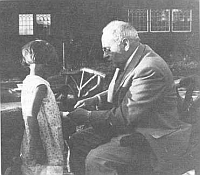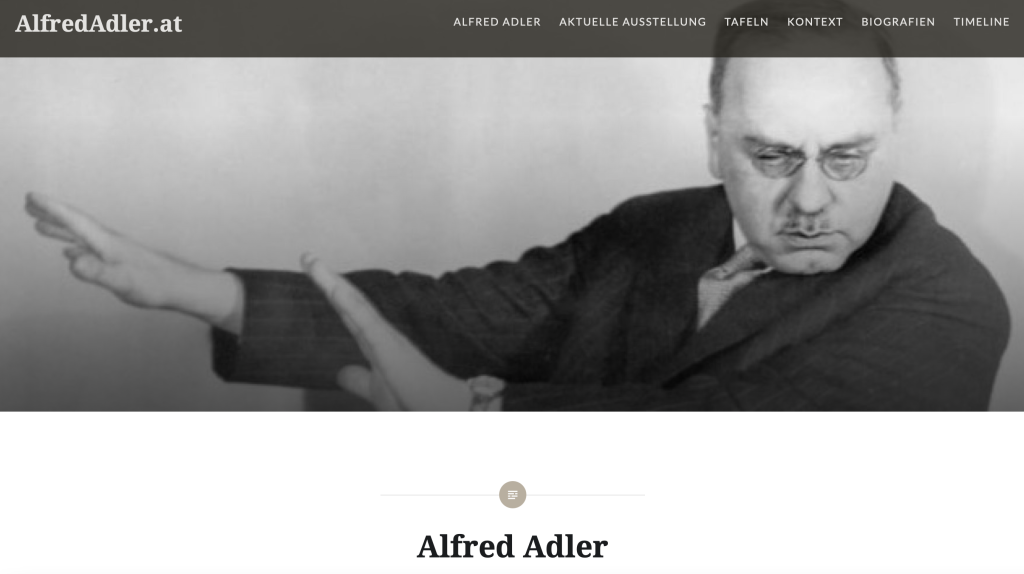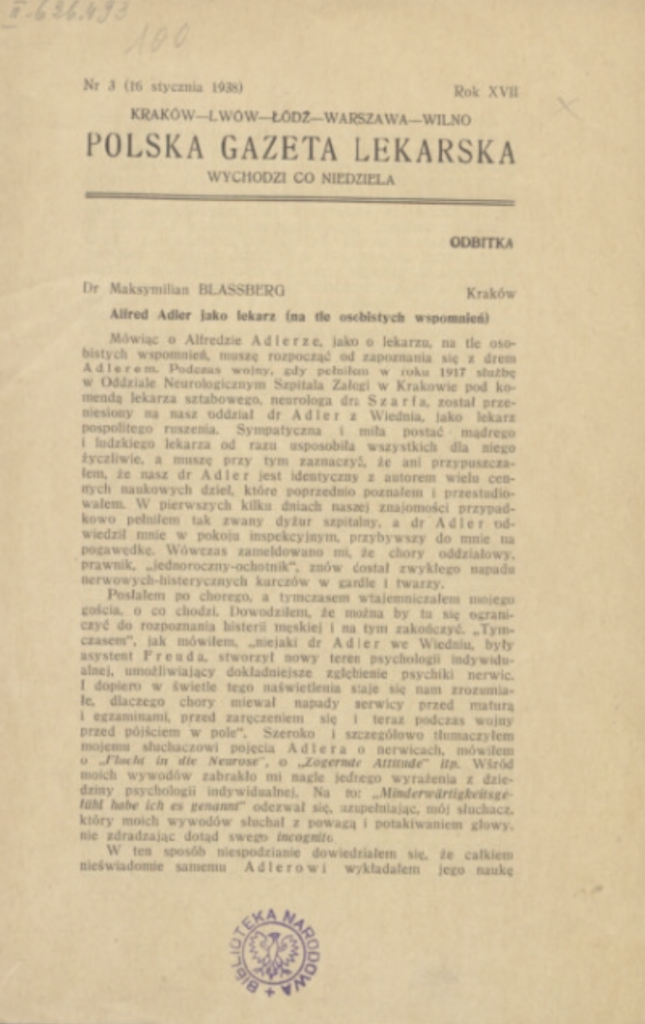Dr. Alfred Adler (born 7 February 1870 in Vienna) – Austrian neurologist, psychiatrist, psychologist and educator, founder of Individual Psychology. His father was a Jewish merchant and his mother a housewife. Alfred Adler married the feminist scholar Raissa Epstein, with whom he had four children.

(cc Alfred Adler Institute of San Francisco & Northwestern Washington)
Adler began his medical practice as an ophthalmologist-neurologist. Soon, however, as a result of observing the ways in which his patients compensated for their disabilities, he decided to move into the field of emerging psychiatry. In November 1895, he obtained his medical degree from the University of Vienna. After graduating from medical school, he began to come into contact with psychoanalysis then flourishing in the hands of Sigmund Freud, whom he met in person in 1899. From 1902, at Freud’s invitation, he participated in the Central Psychological Society, which held weekly meetings on psychoanalysis. In the Vienna Psychoanalytic Association (WPV, Wiener Psychoanalytische Vereinigung), Adler (recognised by Freud as an independent talent in the field of psychoanalysis) held various positions. He was its first president from 1908 to 1911, a position then taken over by Freud and held until 1938. Alfred Adler’s development of his own theories, some of which were at odds with Sigmund Freud’s former corpus of theories, caused controversial discussions within the WPV that eventually forced him to leave the early group of psychoanalysts in 1911.
In 1911. Adler founded a Society entitled the Free Psychoanalytic Society, which was renamed the Society of Individual Psychology a year later.
Adler developed his own theory of personality, adding to Freud’s then dominant thesis, according to which the libido was the sole, and primary, regulator of human behaviour, an alternative theory of the operation of the aggression drive. To a certain extent, Adler recognised alongside the unconscious also the validity of man’s conscious goals, which could be motivators of behaviour and nervous symptoms. To some extent, he anticipated some of the theses of today’s theoretical currents under the umbrella of the International Psychoanalytic Society, such as Heinz Kohut’s psychology, the object relations theory of wd. Melanie Klein, Karen Horney’s feminist psychoanalysis, or Heinz Hartmann’s ego psychology, all of which began to develop many years after Freud.
In addition, his contact with childhood illnesses also directed his interests towards pedagogy. Hence, as part of the Viennese school reform, he and his colleagues founded 30 educational counselling centres and targeted psychoanalytic kindergartens for children from working-class families in Vienna.
During this period, Adler’s teachings gained recognition and began to be increasingly disseminated throughout the world, also in Poland. To develop a feeling of who Alfred Adler as a doctor and human being was, we can read a memoir of Dr. Maxymilian Blassberg, who published some anecdotes about Adler in the Polish Medical Journal 1935 (see picture).
From 1926 on, Adler gained recognition especially in the USA, where, as a result of the further development of the theory by Rudolf Dreikurs, an independent current of Adlerian Psychology in a more behavioural style was established there. This current, after the death of Dreikurs, despite its difference from the rest of European Individual Psychology, which appreciates the common roots of Individual Psychology in Psychoanalysis, is found equally alongside the psychoanalytic current in the International Association of Individual Psychology (IAIP).
Adler continually gave readings of his theories and techniques all over the world. On 28 May 1937, he died during one such trip in Aberdeen, Scotland.
A detailed history of Individual Psychology in Austria can be found here (in German language):


